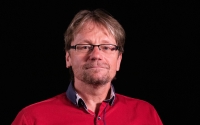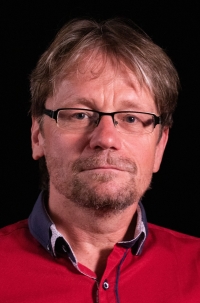We could not allow the return of the totalitarian regime

Download image
Vojmír Kubíček was born on 19 June 1963 in Humpolec where he lives to this day. His father Vojmír was a surgeon and his mother Eva a dentist. He graduated from grammar school and then studied at the Czech Technical University in Prague. In early 1989, he took part in the anti-regime protests within the so-called Palach week, witnessing provocations and inadequate police response targeted against the protesters as well as people who were not even taking part. In the course of the Velvet Revolution, he became its proponent in Humpolec and co-founded the local Civic Forum where he served as a spokesperson. Following the revolution, he spent four years as deputy in the municipal assembly. He is an electric engineer by training, works in IT and brought up two children with his wife.

